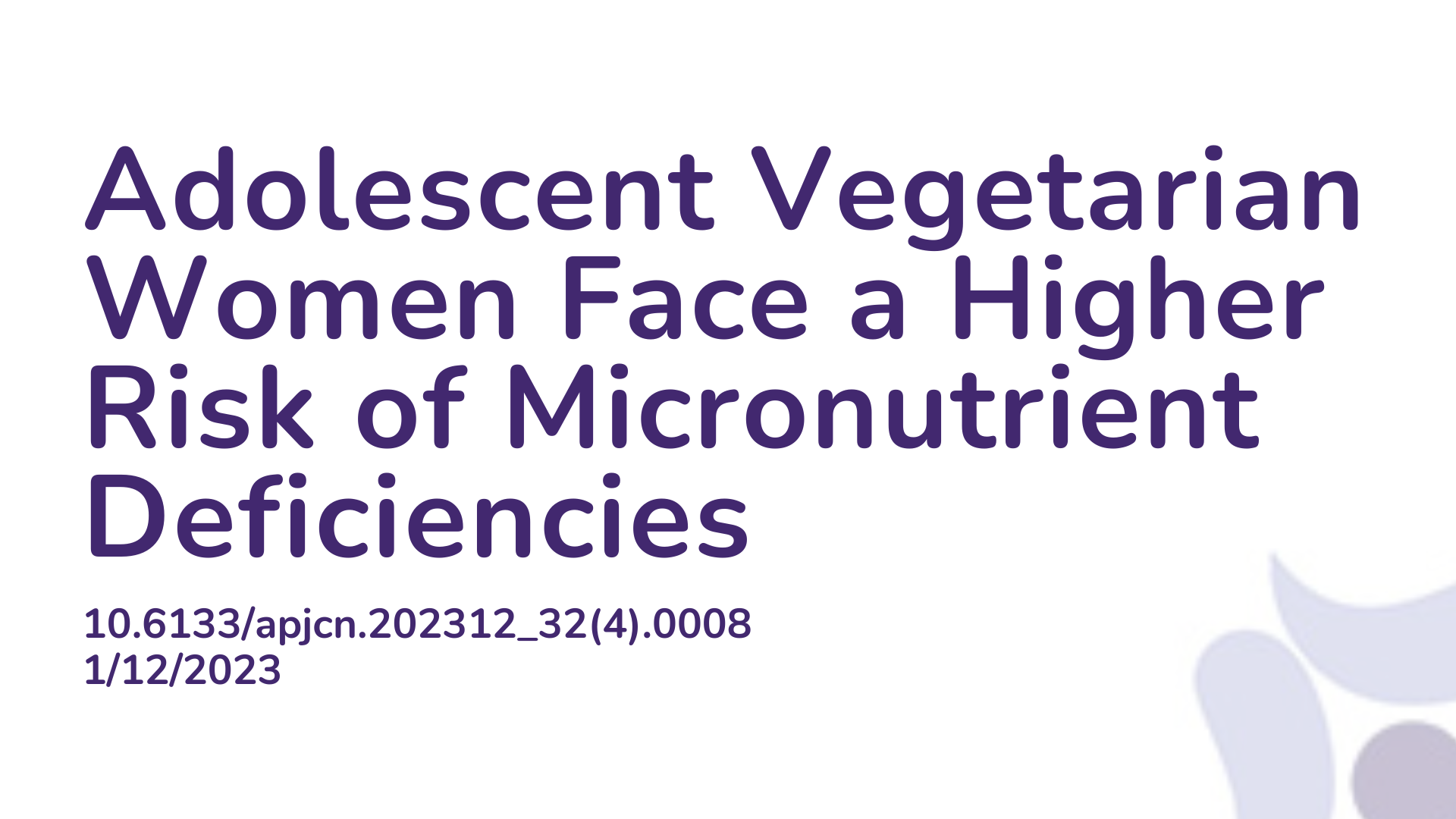Summary:
Concerns persist regarding vegetarian diets and their potential risks of anemia and micronutrient deficiencies, particularly among vulnerable populations like adolescent women. This study aims to compare the micronutrient status of vegetarian and non-vegetarian adolescent women in New Zealand. Women aged 15-18 years were recruited from eight locations across New Zealand and their blood samples were examined for iron, zinc, selenium, vitamin B-12, vitamin D, and parathyroid hormone status. Of the 182 participants who provided blood samples, 15% identified as vegetarian. On average, vegetarians exhibited a 3.1% lower haemoglobin score (a protein in red blood cells that carries oxygen) and had 8.3% lower selenium levels. Conversely, serum folate was 80.5% higher among vegetarians, however zinc and selenium deficiency was higher in vegetarians compared to non-vegetarians. The authors therefore concluded that adolescent vegetarian women may face an elevated risk of micronutrient deficiencies commonly found in animal products, such as zinc and selenium. Adopting dietary practices that enhance micronutrient intake and absorption could be beneficial for this demographic group.
Abstract:
Background and objectives: Globally, there appears to be an ever-increasing interest in adopting a vegetarian diet. However, there are concerns that avoiding meat may increase the risk of anaemia and micronutrient deficiencies, especially for vulnerable populations, such as adolescent women. The objective of this study was to compare the micronutrient status of vegetarian and non-vegetarian adolescent women in New Zealand.
Methods and study design: Adolescent women aged 15-18 y were recruited from eight locations across New Zealand. Blood samples were analysed for: haemoglobin, serum ferritin, soluble transferrin receptor, zinc, selenium, retinol binding protein, folate, vitamin B-12, vitamin D and parathyroid hormone.
Results: Of the 182 participants who provided a blood sample, 15% self-identified as vegetarian (n=27). On average, vegetarians had 3.1% (95% CI -5.8 to -0.4, p=0.025) lower haemoglobin, and 8.3% (95%CI -14.1 to -2.1, p=0.004) lower selenium. In contrast, serum folate was 80.5% (95% CI 45.7 to 123.7, p<0.001) higher. The prevalence of zinc and selenium deficiency was higher among vegetarians (50% and 12%, respectively) than non-vegetarians (21%, and 2%, respectively).
Conclusions: Adolescent vegetarian women may be at increased risk of deficiency of micronutrients commonly found in animal products, including zinc and selenium, and may benefit from following dietary practices that enhance micronutrient intake and absorption.
Article Publication Date: 1/12/2023
DOI: 10.6133/apjcn.202312_32(4).0008



